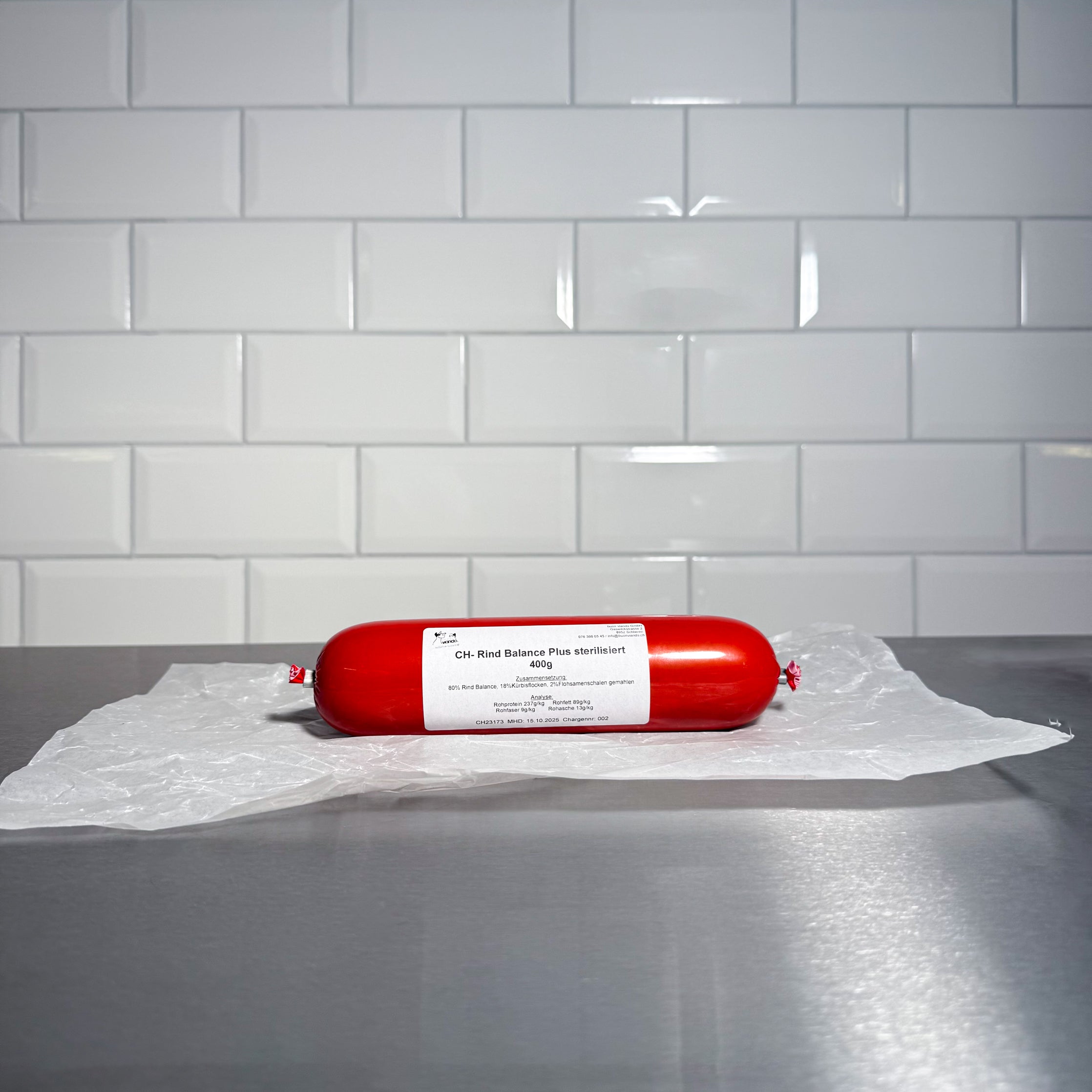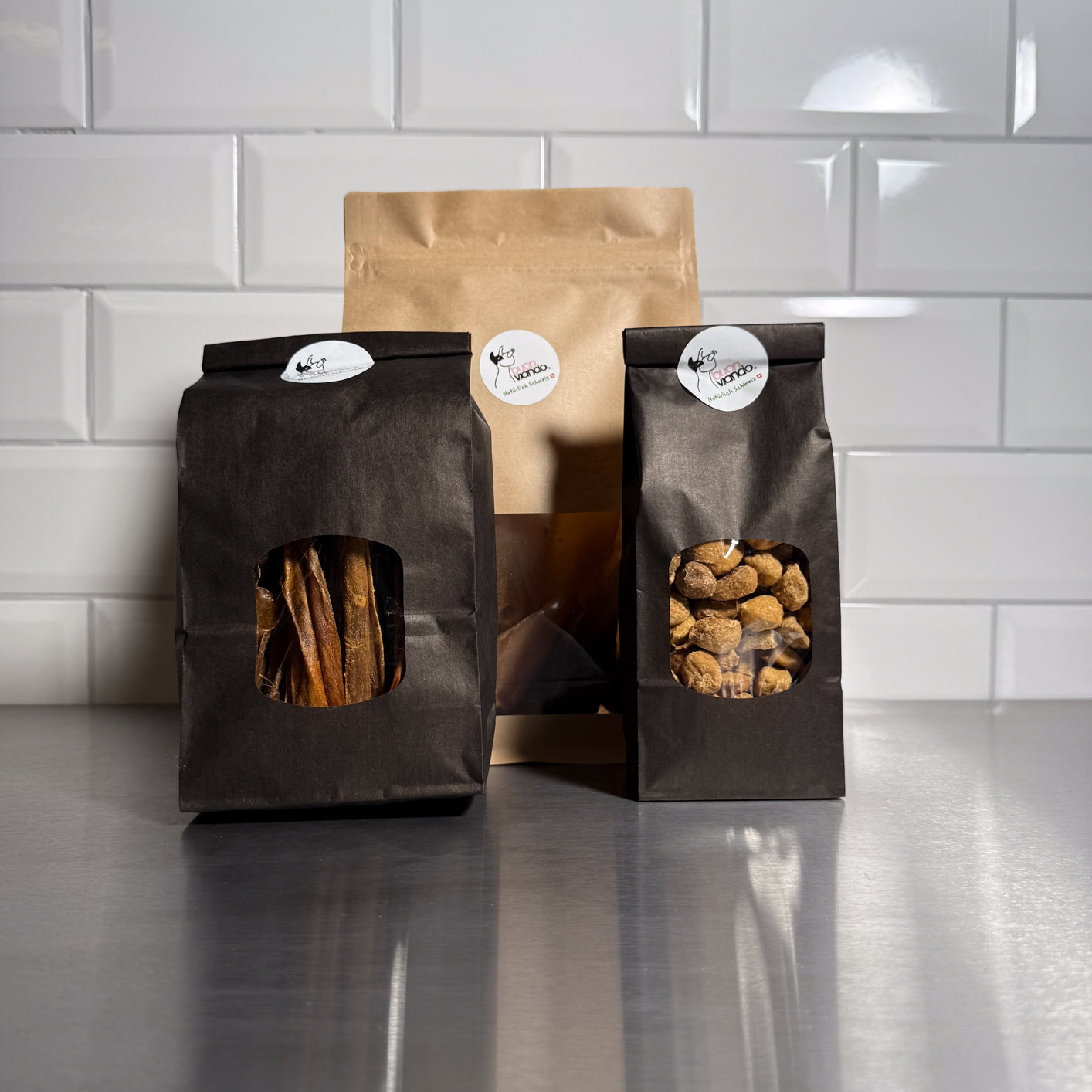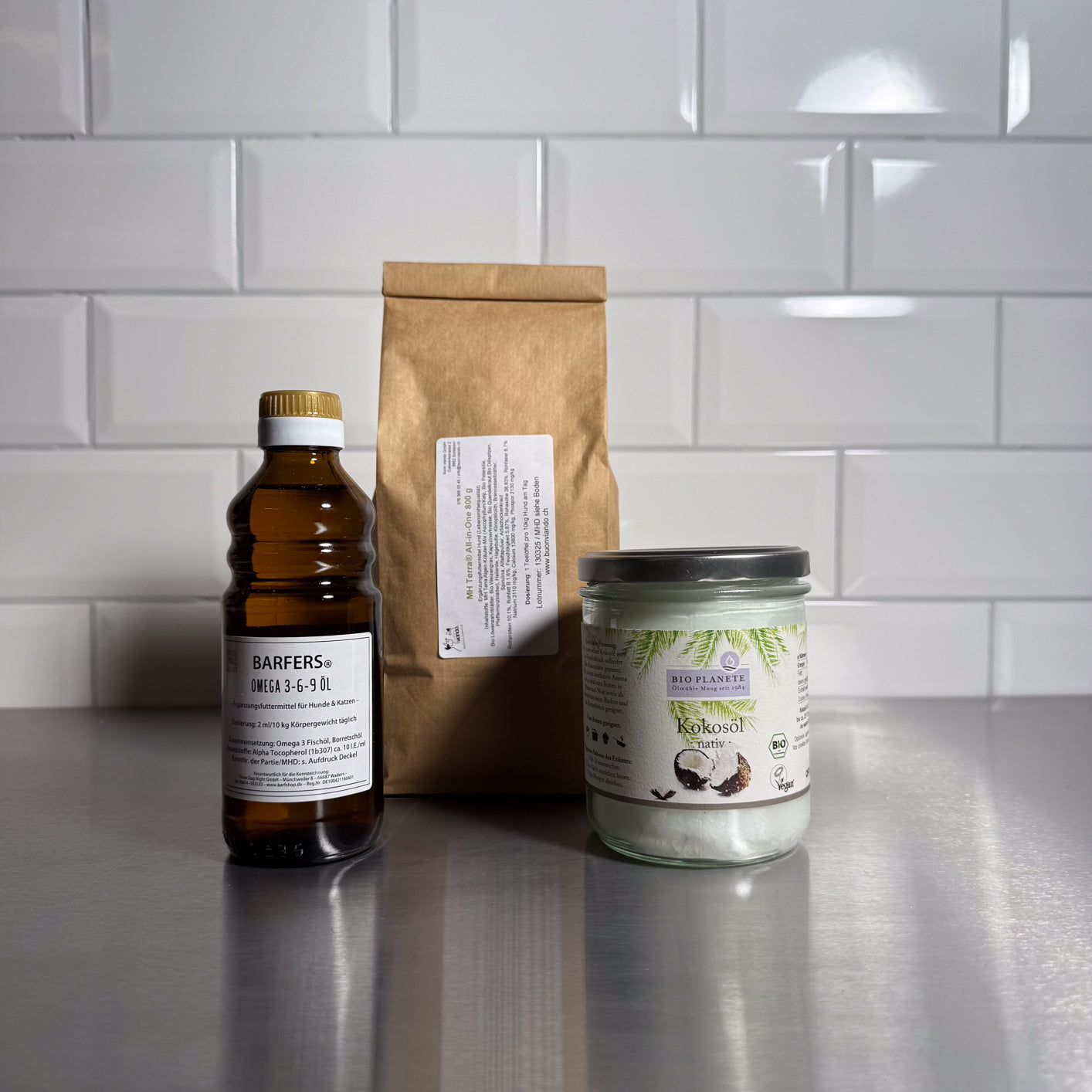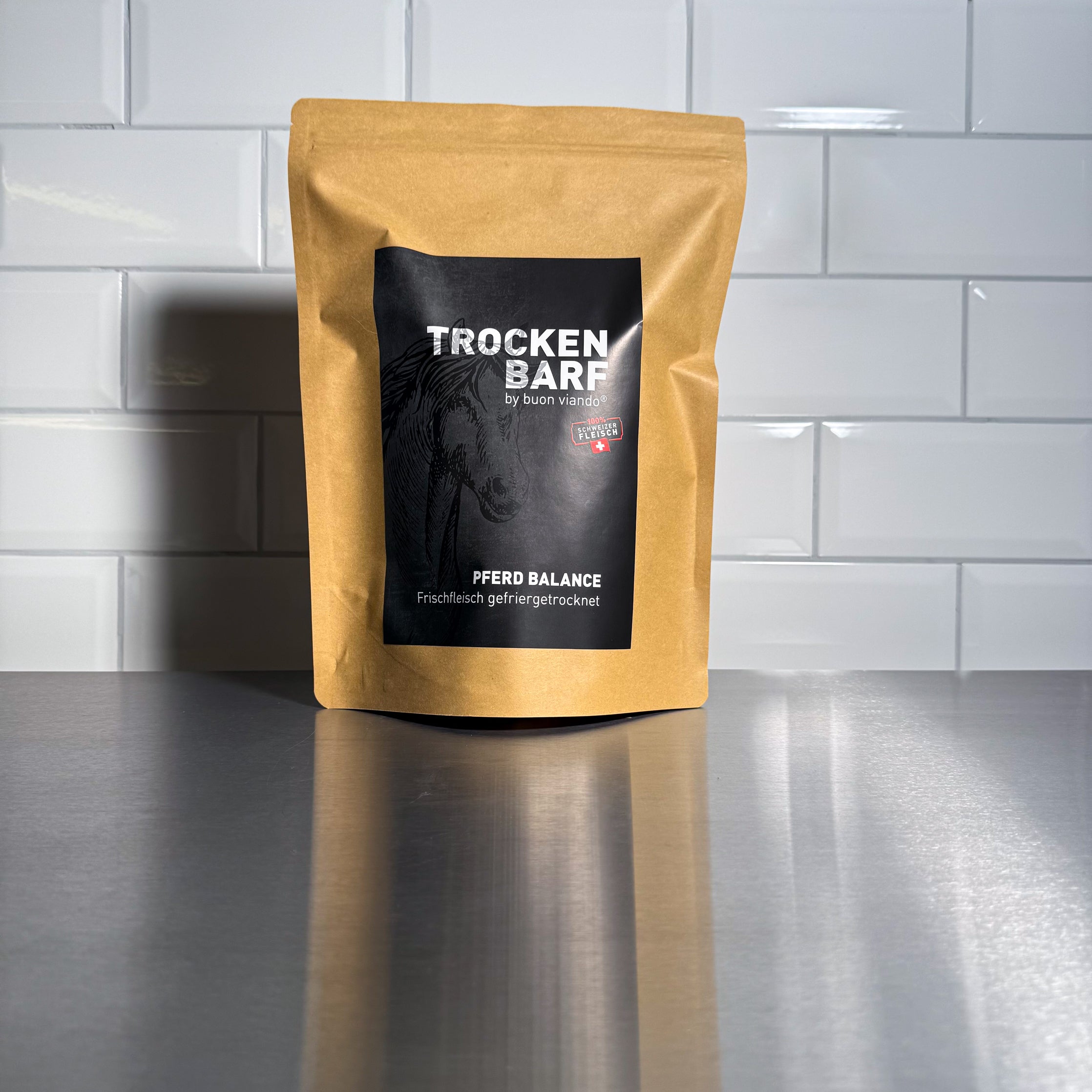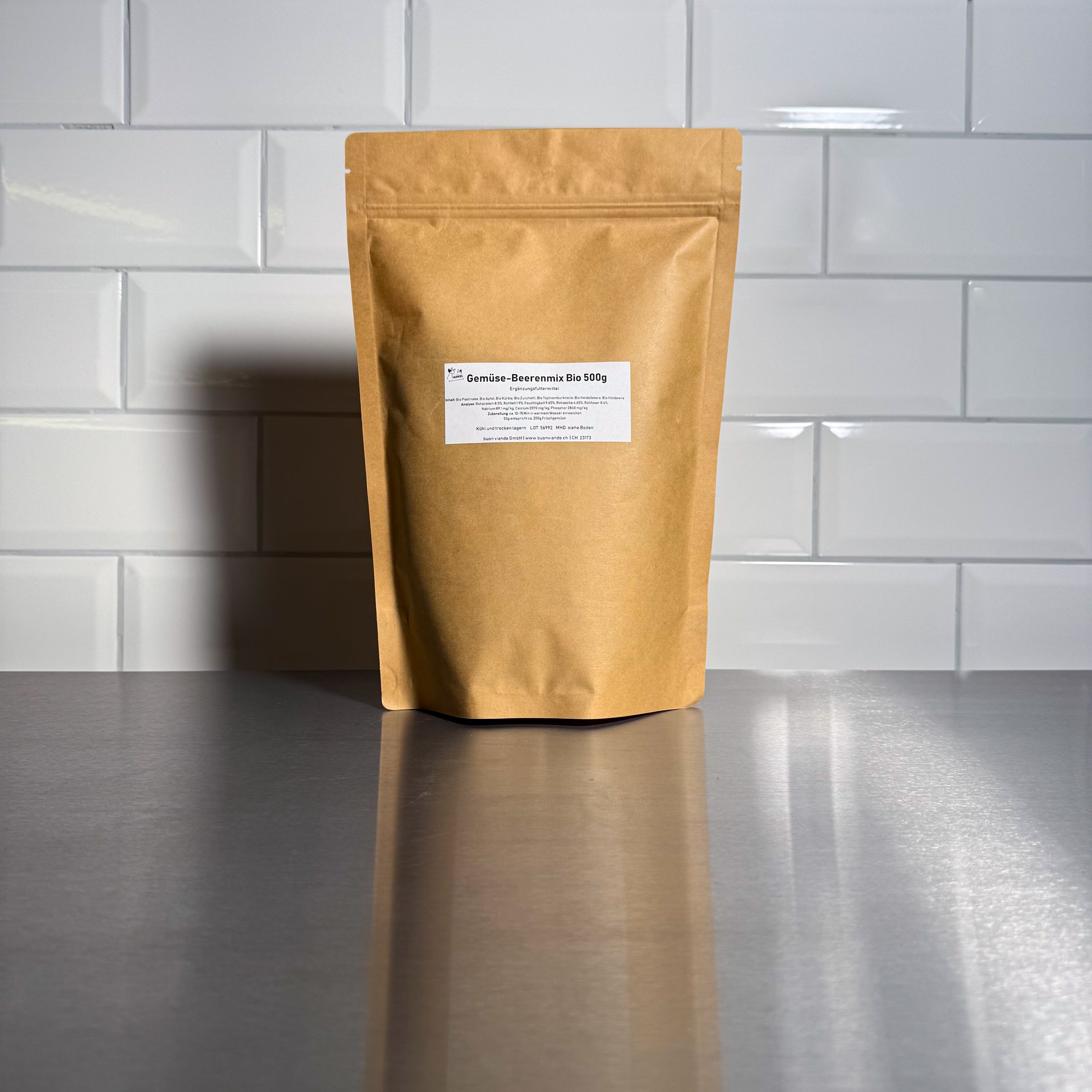Why should your dog/cat eat vegetables?
"Dogs/cats are carnivores, right?" This is one of the most common questions when it comes to feeding vegetables. Sure, dogs are descended from wolves, but unlike their wild ancestors, they have adapted to a more varied diet. Even wolves absorb plant components through the stomach contents of their prey. Your dog benefits from vegetables as a valuable source of nutrients – for healthy digestion, a strong immune system, and optimal energy.
For dogs:
- Fiber: Supports digestion and ensures a healthy intestinal flora.
- Phytochemicals: Antioxidants that strengthen the immune system and have anti-inflammatory effects.
- Vitamins and minerals: Especially vitamins A, C, and K, as well as potassium and magnesium.
For cats:
- Cats are strict carnivores and only need a very small amount of vegetables and fruit.
- Fiber: In minimal amounts, fiber can support intestinal peristalsis. A suitable source here is psyllium husk.
- Micronutrients: Some vitamins can be usefully supplemented, although cats should obtain most of their vitamins from animal sources.
Fiber: The Secret to Healthy Digestion
Fiber is indigestible plant fiber that swells in the intestines and thus regulates digestion. It ensures healthy intestinal flora, supports the immune system, and can even help prevent diarrhea or constipation. Natural sources of fiber such as carrots, zucchini, or pumpkin are therefore a perfect addition to meat rations.
Wolves also absorb fiber from the stomach contents of their prey—a principle reflected in dog food with omasum and green tripe. These contain pre-digested plant fiber, which is particularly digestible and also promotes intestinal health. A combination of fresh vegetables and these natural ingredients can therefore optimally support your dog's digestion.
Raw or cooked—how do I feed vegetables correctly?
Dogs and cats cannot break down plant cell structures as easily as we humans can. Therefore, vegetables should either be finely grated, pureed, or lightly cooked to increase digestibility.
Suitable fruits:
- Cranberries, raspberries, apricots, apples, melons, pineapple, plums, gooseberries, persimmons, peaches, blueberries
- Suitable vegetables:
- Lettuce, fennel, zucchini, cucumbers, carrots, arugula, spinach, beetroot, parsnips, pumpkin, chicory, sweet potatoes
- CH frozen vegetable and fruit mix - Healthy mix in practical 125g sausages - easy to handle.
- Organic vegetable and berry mix - Simply soak in water - ideal for on the go or when fresh vegetables aren't available.
Which vegetables are off-limits?
Not everything that looks healthy is good for your dog. These varieties are taboo:
- Toxic vegetables and fruits:
- Eggplants, avocados, raw potatoes, raw legumes, tomatoes, raisins, and grapes, and garlic for cats.
- Why are they toxic? They contain various plant substances such as solanine, persin, and others that are toxic to your pet!
The right amount matters
How much vegetables does your dog need? As a rule of thumb: The plant-based portion of the food should be approximately 20% of the total food, depending on your dog's individual needs. Start with small amounts and observe how your four-legged friend reacts.
Conclusion: A colorful mix for dog health
A balanced diet doesn't just mean meat, but also valuable fiber and phytochemicals from vegetables. The right selection, preparation, and quantity make all the difference – for a healthy, vital furry friend with a strong digestion!


